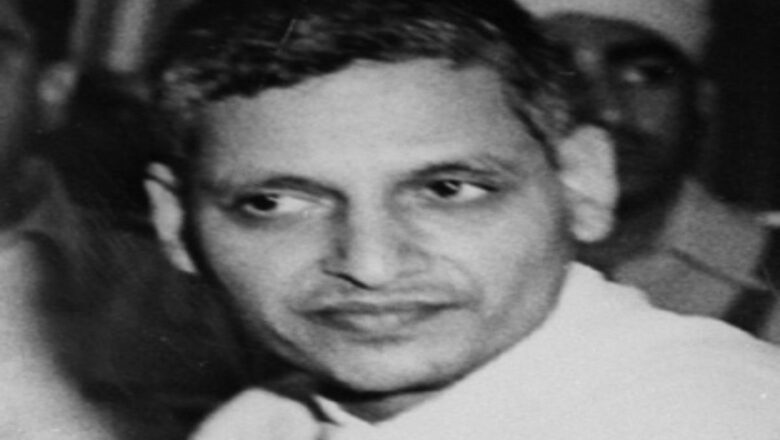
views
The fate of Nathuram Godse had to be decided on two fronts—legal and moral. While the legal proceedings progressed steadily, culminating in the successive higher courts confirming Godse’s death sentence, the road to a political decision, taking into consideration the moral aspects, was anything but smooth. Godse had fatally shot Mohandas Karamchand Gandhi on January 30, 1948. The trial court passed the death sentence for Godse and Narayan Apte on February 10, 1949, which was upheld by the Punjab High Court in June, and the two were hanged on November 15.
The moral reactions to the judicial verdict started coming in as soon as the trial court announced its judgement. The main current of this reaction was in favour of commuting the death sentences. Two fundamental issues that came to be debated at this time which, unfortunately, have featured in India’s political discourse much less than they deserve were the applicability of Gandhian principles of non-violence to statecraft and the abolition of capital punishment.
Brajeshwar Prasad, a member of the Constituent Assembly, was one of the first ones to write to Home Minister Vallabhbhai Patel that it would be “befitting Gandhiji’s memory to pardon this scoundrel along with the others who have been sentenced” and to make them “settle down in the Andamans as free men.” Incensed at the suggestion of clemency, Patel quickly replied, “I am sure you will appreciate that nobody knows better than myself what Gandhiji would expect me to do in the matter. You can, therefore, leave the matter at that.”
While the Punjab High Court was hearing the appeal against the verdict of the trial court, Gandhi’s third son, Ramdas Mohandas Gandhi, wrote to Chakravarti Rajagopalachari, the governor-general of the Dominion of India, on May 1, hoping that “you (prime minister Jawaharlal Nehru, Patel and Rajagopalachari) are not one of those who want to see him sent to the gallows.”
Surprisingly, Ramdas put a political argument before referring to Gandhi’s principles to support his point of view. He argued that “with the exception of a few, the rest of the Hindus in India or elsewhere” were all RSS-minded as far as their attitude towards Muslims of India and Pakistan was concerned. “It is not one Godse the assassinator of Bapu that is to be dealt with but millions of Godses”, Ramdas claimed. Therefore, instead of killing one or two individuals, a more effective way to change this mindset in his view was to send Godse and his close associates to a penitentiary to “ponder and think over” if they had achieved their goal by assassinating Gandhi and “decide once for all that Hinduism or India cannot be and will never be saved by pursuing RSS methods.” If, on the contrary, “Godse is sent to the gallows, you know Bapu, wherever he may be, will feel deeply hurt; the same will be the condition of known and unknown associates of Bapu.”
After appealing to the top brass of the Nehru government, Ramdas approached Godse directly through a letter. On May 17, he wrote, “I am sure, you will one day realise that you have only put an end to my father’s perishable body and nothing more.”
Godse’s response of June 3 from the prison in Shimla was to some extent compassionate, in which he wanted Ramdas to see his point of view. For a person accused of having committed a crime out of hatred, Godse’s letter was remarkable in having no hint of rancour. In fact, quite the contrary. Godse wrote to “Dear Brother Shri Ramdas M. Gandhi” that as “a human being, I have no words to express my feelings for the wounds that you and your relatives must have received by the tragic end of your revered father, by my hands.” “He was a man of reason and logic”, Godse wrote, but at the same time, “a man of powerful sentiments also”, the most important of which was “devotion to my Motherland.”
To Ramdas’ assertion that once Godse’s mind was free from misunderstanding he would repent, Godse replied, “Brother, I say that I am an open-minded man, always a subject for correction.” Until then he had “come across nothing which will make me repent”, but he was curious regarding the method by which Ramdas wanted to remove his misunderstandings. Making it clear that “neither the gallows nor any big show of mercy” would help achieve that, Godse told Ramdas that the “only way is to see me and make me realise.” He therefore suggested that Ramdas should meet him “with some prominent disciple of your revered father, particularly who is not interested in any power politics, and to bring to my notice my most fatal mistake.” “Who knows you may be able to change me and make me repent or I may change you and make you realise my stand,” he wondered. Godse ended his letter by expressing his “utmost regrets as a human being for your sufferings due to the death of your revered father by my hands.”
Ramdas readily agreed to meet Godse, hoping that divine grace would “help you to see your mistake and realise that it was after all Gandhiji who knew best…the interests of our Motherland, and the Hindu religion in particular.” Godse was happy that Ramdas agreed to see him. “My pressing request is to try to have this interview,” even if it took place “one day before my execution.”
He might have anticipated the pressure on Ramdas to drop the idea of the meeting and wrote, “It does not matter even if you do not see me at all due to some other difficulties, but [that] mentally you are prepared to see me is enough for me to be convinced about your sincerity of cause.” He additionally suggested that “if possible, you can enquire through Shri Vinobaji Bhave, who belongs to Maharashtra by birth, or through somebody else about my general character and behaviour up to my arrest. Perhaps that will be useful for you to know the background of the person who committed a very cruel crime.”
Ramdas informed Nehru that he wanted to see Godse along with Vinoba Bhave and his brother, Balkrishna Bhave, but soon proposed to substitute Balkrishna with Kishorlal Mashruwala who he felt would be “in a better position to bring about a desired change in the outlook and wrong policy that has been pursued by Godse.” Nehru was not happy with Ramdas’ idea. He was inclined to advise Ramdas not to visit Godse but decided to be guided by Patel and Rajagopalachari.
Rajagopalachari was derisive of Ramdas’ efforts in his letter to Patel. “It seems Ramdas is excited and is not able to restrain his anxiety to talk to condemned prisoners and convert them to the creed of non-violence and repentance!” he wrote, adding that it was something that “Bapu himself was not able to do and to which he was sacrificed like a lamb led to the altar!” His annoyance at the increasing demand, especially from Congress leaders and Gandhians, for clemency to Godse, knew no bounds. So intense was his revulsion that he started believing that all this was being subtly engineered by Godse himself.
Unless the “death sentence” was abolished by law “at once” it would be “entirely absurd to give the benefit of such abolition” to Godse “who does not show the least sign of repentance,” Rajagopalachari wrote to Mashruwala. He was cynical of such demands in the press, accusing them of trying “somehow to get the death sentence abolished in time” to save the killer of Gandhi. Predictably, he was not ready to let “the man who has done the wickedest act of modern times and murdered India herself” get “the benefit of rash reforms.” Therefore, he told Ramdas, “I would advise you to leave the case of Godse in the hands of the Government. My emphatic advice to you is not to intervene in the case.” Patel too concurred. Thus, Nehru, Patel and Rajagopalachari were all against the idea of Ramdas meeting Godse.
Patel was apprehensive that in an atmosphere where “there is every likelihood of an attempt being made to treat him [Godse] as a martyr,” the meeting “would invest the last days of Godse with a certain amount of glory.” Moreover, “Ramdas is not equal to him at all,” Patel wrote to Nehru. Ramdas capitulated to the pressure from the stalwarts of the government. On June 29, he informed Nehru, “As it has never been my intention to do anything that all the three of you may not like, I have decided to leave Godse’s case in the hands of Destiny.”
To be continued
Sources: Sardar Patel Papers (National Archives of India), Sardar Patel’s Correspondence (Ed. Durga Das), Volume VIII
Chandrachur Ghose is author of the national bestsellers ‘1947-57, India: The Birth of a Republic’ (2023) and ‘Bose: The Untold Story of an Inconvenient Nationalist’ (2022), both published by Penguin. Views expressed in the above piece are personal and solely those of the author. They do not necessarily reflect News18’s views.




















Comments
0 comment